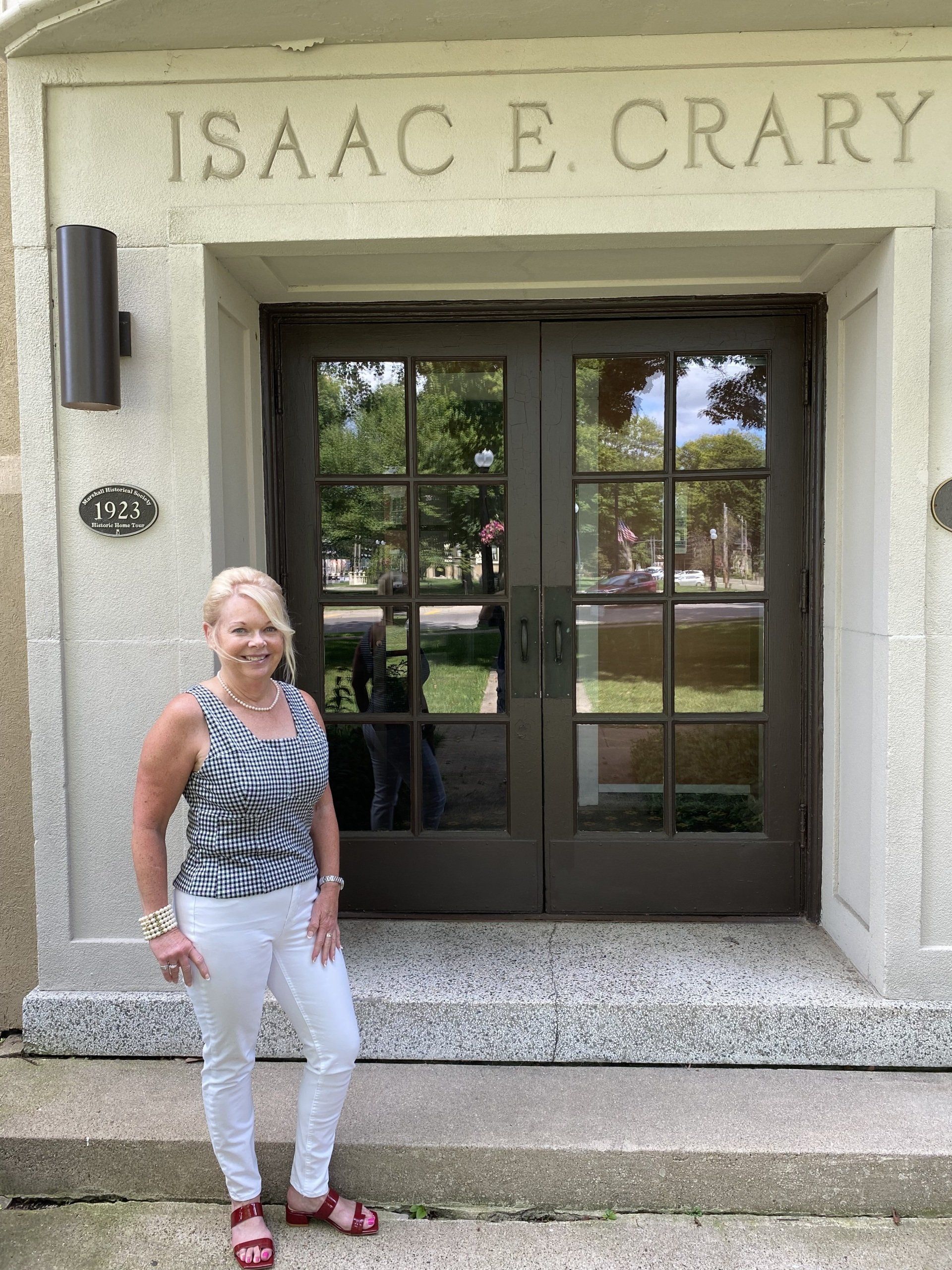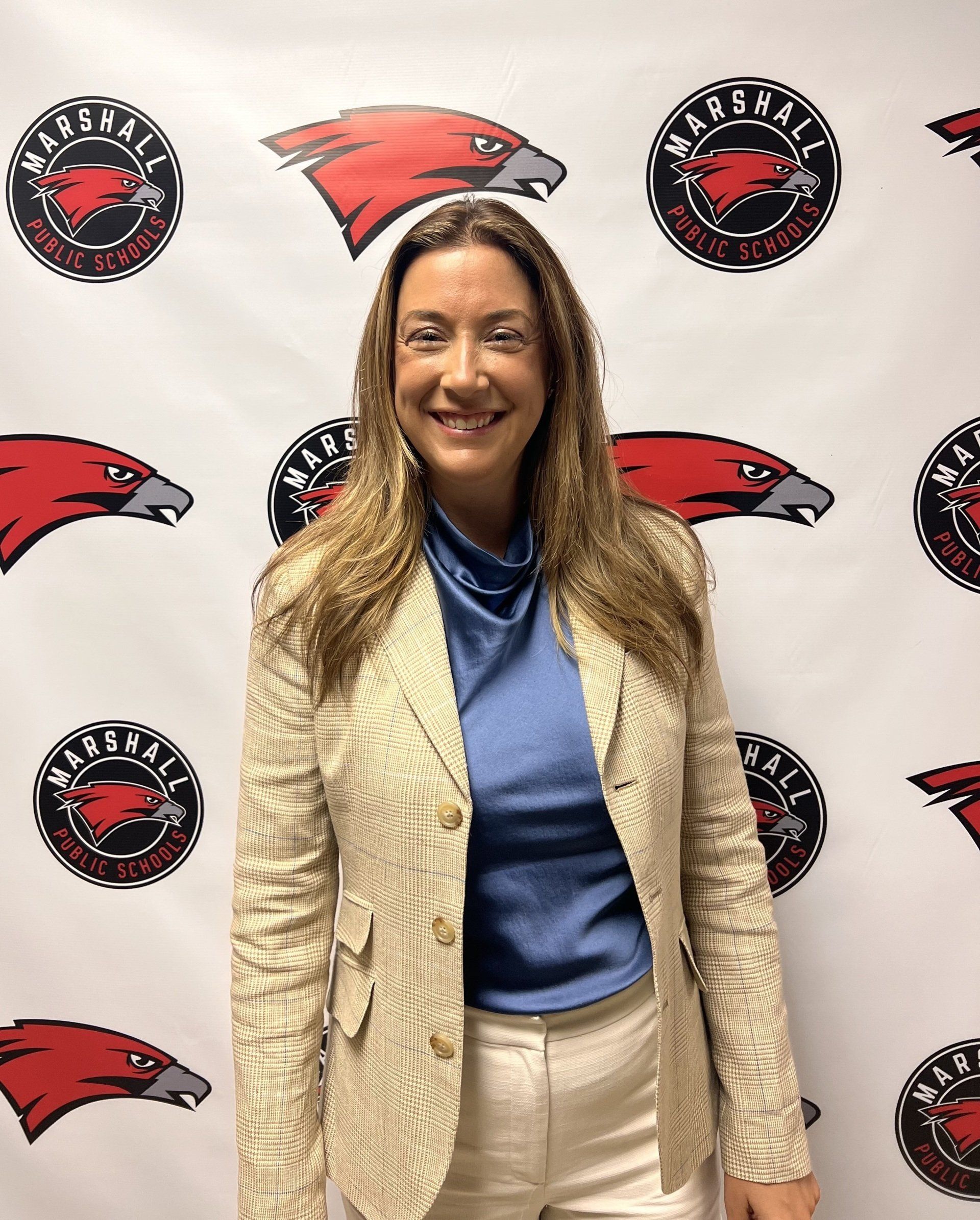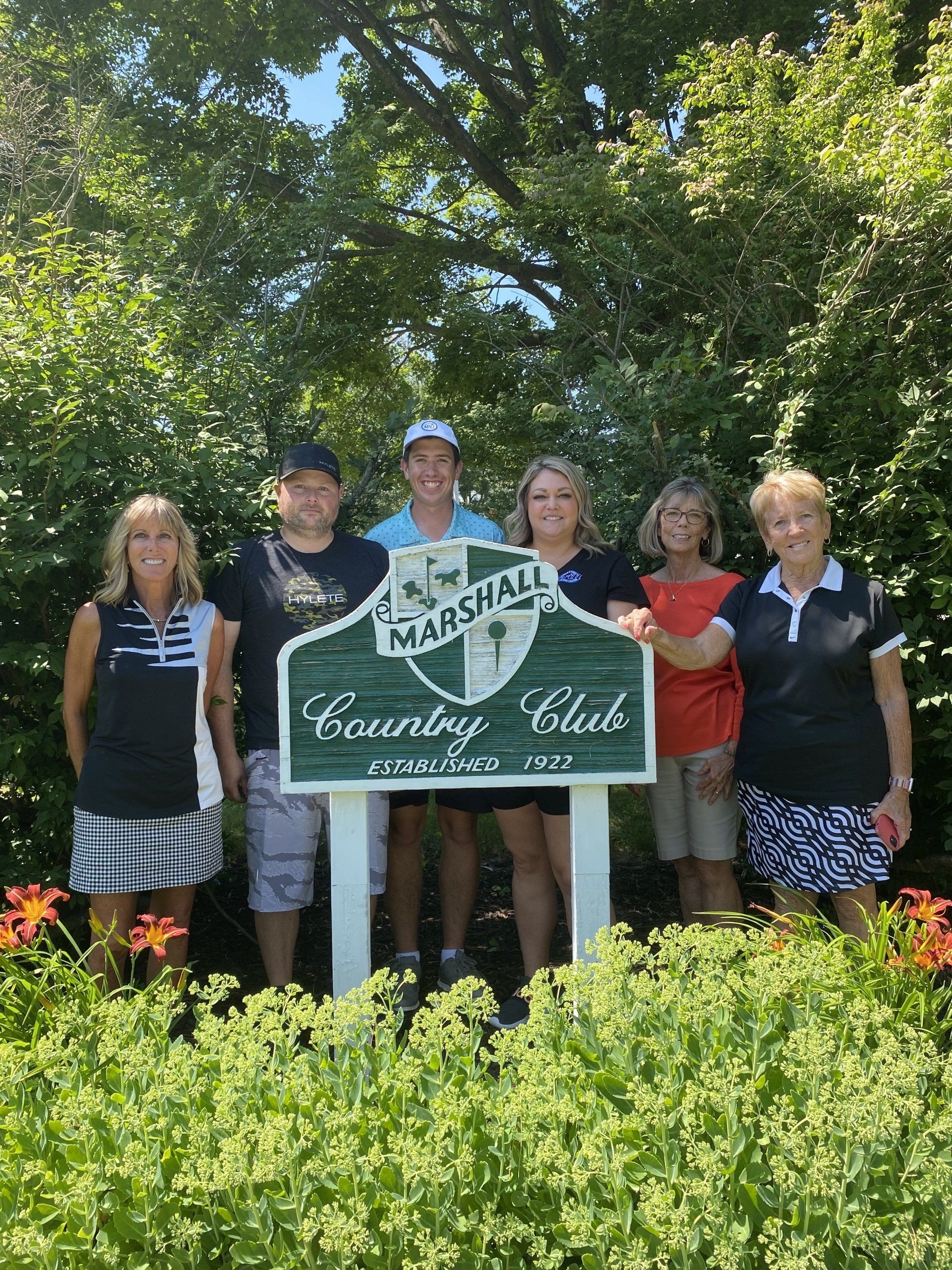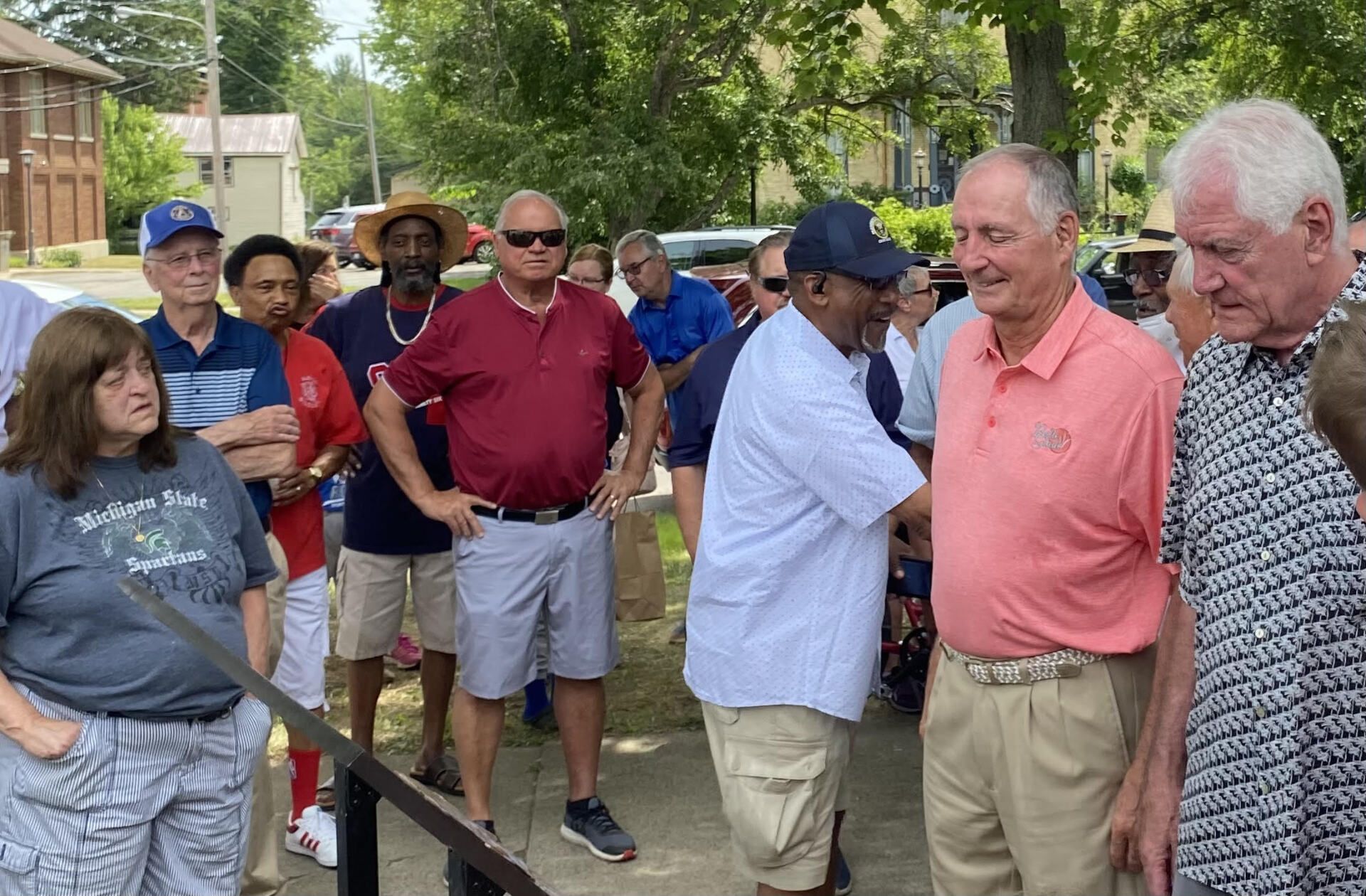Blog Layout
Behind The Mask: Marshall catcher Cooper Middleton
John Hendler • April 10, 2021
Cooper Middleton began playing competitive travel baseball when he was 8 years old and knew exactly what position he wanted to play.
“When I was younger, I wanted to be a catcher because I loved wearing the gear and getting dirty,” said Middleton, a Marshall High School senior and four-year varsity player “I was also able to see the entire field and be in control of the action which is one of the aspects of catching that I still love today.”
As he got older, Middleton stuck with catching because he thought it was the hardest position on the field and he wanted to be the guy to do it.
“I also appreciated the mental side of it because every pitch and every batter represents a different, unique opportunity,” he said. “l worked hard at developing my skills for blocking and receiving the ball because of the technique it requires… I consider blocking and receiving to be kind of like an artform.”
Middleton says if you take it seriously and work hard at it, catching is both mentally and physically exhausting but also very rewarding.
“Calling a game takes some strategy,” he said. “Every team you face is different, and hitters have different strengths and weaknesses. You have to pick up on those strengths/weaknesses and take advantage of them. Calling pitches throughout the course of a game requires knowing your pitcher and what they can do and how they are feeling and also the game situation. You may want to make a power hitter chase off speed pitches or you may want to make a weaker hitter put the ball in play. It all depends on the flow of the game and who’s at the plate.”
Middleton added that during pre-game warmups, he will typically talk to the pitcher about how they are feeling and what pitches they feel will work best that day.
“We go over signs and plays and what we want to do if certain situations come up in the game,” he said. “Then I typically finish my warmup with them and leave them to focus on the game - letting the pitcher handle themselves is important, but catchers need to be able to keep them calm and collected so they don’t do too much.”
Throughout the years, Middleton said he has been “lucky” to not have any injuries that have been severe during a season.
“Just minor injuries like sprained ankles, black eyes, a few arm injuries and a few knee injuries,” he said. “The only thing I sometimes have to deal with is muscle soreness but that comes with the job and I have good parents (both are physical therapists) that help me with that.”
Foul tips off the mask or other areas, he added, aren’t as bad as they seem to appear most of the time.
“They happen so fast you can’t even tense up before the ball hits you,” said Middleton. “It’s just the after
effect of the high velocity that hurts a little. Direct hits to the mask sometimes ring your bell but, in most cases, you can shake it off pretty quick.”
Along with talking with his pitcher pre-game, Middleton noted that establishing a good relationship with the umpire before, during and after the game is very important.
“Before every game I usually try to greet the umpire, shake his/her hand and introduce myself,” he said. “During the game I like to talk or joke with them, get to know them a little and enjoy the game. After the game I shake their hand again and thank them and wish them well. Having a good relationship with them allows you to be remembered by them as a good person and a good catcher and you also never know when you will have that umpire again, so having a good reputation is always a positive thing. Umpires will also appreciate you even more if the ball never touches them.”
Middleton said the “best” parts of being a catcher seem a “little odd” and that's because it's a unique position.
“The best parts of catching are the bruises all over your body and the dirt all over your uniform,” said Middleton. “If you have both after a game, you know you played hard, and it was a good day.”
He added that calling pitches, being able to control the game, leading by example and being a vocal leader on the field are also great reasons why he feels being a catcher is the best position in baseball.
“The most challenging thing about being a catcher is being mentally tough on every pitch,” said Middleton. “Being a catcher requires you to throw the ball just as much as the pitcher, squat for the majority of the game or games and you have to be comfortable with smelling terrible afterwards.
“Being mentally tough and powering through the moments of muscle soreness, pain, overheating and exhaustion make it worth it. As I have grown up, my love for catching has increased. I have made it my main athletic focus to become the best catcher I can be and take advantage of every opportunity that crosses my path.”
Middleton said he been “blessed” with great coaches like MHS coach Tom Sharpley and the rest of the MHS baseball staff and great summer ball coaches like Thom Shipley and his current coaches, Mike Hinga and Don Ampersee with the Kalamazoo Maroons.
“I am grateful to coach Sharpley for believing in me and giving me the opportunity to start on varsity as a freshman,” said Middleton. “I have also been blessed with great training opportunities, especially with Rick Sellers, former MLB scout and player who has opened doors for me that I will always be grateful for, like being invited to attend the MLB Professional Developmental Pipeline showcase the past two years.”
Sharpley said Middleton’s love of the game translates into him being a leader.
“He’s always willing to catch a bullpen, take conditional batting practice, that type pf thing,” said Sharpley. “He’s a four-year varsity player and that makes a huge difference. The other guys watch him as he sets the example of being a hard worker. He’s a great asset for our baseball program.”
After graduating from MHS, Middleton will attend Kellogg Community College (and eventually transfer to a four-year school to play ball and earn a degree in exercise science and become a physical therapist) and play for the nationally-ranked Bruins’ baseball program.
“I met coach Eric Laskovy the fall of my freshman year while catching a bullpen for a pitcher he was looking to recruit,” said Middleton. “We talked, stayed in contact and began a great relationship. Coach Laskovy introduced me to coach Sellers and for the past four years I have had the opportunity to train with him in Lansing and Mt. Pleasant. I have been working hard to play at the next level and when KCC gave me an offer, I was excited. KCC has a great baseball history, and I look forward to competing, but first we have business to take care of this year at Marshall looking to win our fifth straight league championship and third straight district title. I can't wait to get playing one last year of high school and summer ball.”

By Seth Berry
•
September 10, 2022
Get to know MPS Superintendent Becky Jones as she looks ahead to the new school year Marshall Public Schools Superintendent Becky Jones said she has always had a passion for wanting to work in education. Even though her master’s degree is in business from Spring Arbor University, Jones originally went to school at Eastern Michigan University to be a special education teacher when she was an undergraduate before making the switch to the business field. “I always wanted to work in some sort of line in education and be a part of the school system,” Jones said. “My aunt was a special education teacher in an early childhood role and she worked for Jackson ISD. That was part of the reason why I wanted to go to school to be a special education teacher when I started. I ended up changing and I’m not 100% sure why I changed, but it’s interesting that I ended up into the system in the career path of doing that.” After Jones graduated from EMU, she landed a job in Jackson as a business manager for a construction company before being hired at Jackson County Intermediate School District in business operations. Jones has been in the school system ever since her time at Jackson County ISD before coming over to Marshall Public Schools, where she served as the director of business operations for the district for eight years. Jones said the relationships she built over the eight years in that role has helped her transition into the superintendent role. “I think with how I am as a leader and how I am as a person, I like to build a lot of personal relationships,” said Jones. “So I think that’s just something that has come natural for me over the eight years, I’ve just always built really good relationships with the people that I work with. I care about the people, I care about families, I care about our students. It didn’t seem unnatural for me to fill into the role of interim, because it was something I wanted to do.” Jones was appointed interim superintendent in May 2021 after the departure of former Superintendent Randy Davis. After eight months, the Marshall Public Schools Board of Education unanimously agreed to hire Jones into the permanent role. When reflecting on when she officially was hired into the permanent role, Jones commended the many who have supported her during the process and said she feels honored to now be serving in the role. “I think that educating people’s children and educating our youth is a very important role,” said Jones. “It’s an honor and a blessing in how I look at it.” Jones added that she is driven and inspired by being able to serve two communities, being students and families in both Marshall and Albion. “When I look at the district as a whole, I look at it as serving two communities,” Jones said. “Obviously we have an interesting history as a school system with bringing Albion into the system and serving both Albion and Marshall. That to me alone, just having the two communities that we get to serve, is a wonderful thing. Both communities have a lot to offer when you look at it. There are a lot of great people, leaders and businesses that are really supportive of the school system and really supportive of our kids. That’s one of the many benefits of this role.” Jones added she is also inspired by being able to serve the students as a whole and being able to interact with them and the teachers who are involved in their learning development. “Also the kids and the interaction with the kids. We get to go out to buildings and interact with the kids and interact with the teachers,” Jones added. “We have a wonderful staff in the district. When I look at the role, I don’t look at it as a superintendent role, I look at it as ‘I get to work with these amazing people who work for Marshall Public Schools and I get to meet all of these wonderful community members.’” In a March article from the Battle Creek Enquirer, former Board President Richard Lindsey acknowledged Jones played a key role in the annexation of the Albion School District and Marshall Public Schools in 2016. Jones further explained how she was involved in that process. “I walked alongside Dr. Davis when annexation happened,” she said. “I sat in all the meetings, went through all the financials and worked on all those things and what it would look like. So I was right alongside working through the annexation piece of it. Through annexation, there were a lot of people that care about both communities and about wanting to make sure that all of our kids have equal opportunity and equal access to good education. To me, in my eyes, that’s the one thing that matters, is equal access to kids for education.” As superintendent, there are both challenges ahead for Jones along with some things that she is excited about in terms of plans the district is implementing going into the school year. “I’m really excited about our strategic plan,” Jones said. “I think it’s really important for organizations to have a vision for what they are working towards. And I think that we’ve clearly written out what our vision is as an organization. I’m really looking forward to putting that in place.” As far as challenges go, Jones brought up being able to educate students in a post-pandemic world and focusing on providing support for students and families on what they need to further their education in light of all the disruptions that took place in schools during the past two years. “I think we still have a lot of challenges post pandemic when we’re looking at children and we’re looking at education,” Jones said. “We as a district need to sit down and focus on where our kids are at and where we need our kids to be in terms of education. So, I think for this year it’s really going to be a huge focus on what support we can give our families and the things we can do to really get our kids educated and where they need to be in a post pandemic world.” Another challenge in Jones’ eyes is how to put a new bond on the table and how to get community members to support one this time around. Last November, a $45.6 million bond was voted down by a 2 to 1 margin. She also mentioned the school’s sinking fund millage that she said will be on the ballot for voters this November. “We have $75 million worth of needs,” said Jones. “We obviously had a failed bond attempt and those needs haven’t gone away. So we’re going to have to go back out to the community in looking at a bond and (figure out) what we need to do. We need to sit down and talk about where we’re at with that. Another thing is with our sinking fund millage. That is set to expire and we’re going to be putting a renewal on the November ballot. It is a renewal but it’s not going to be worded as a renewal, because we’re going to add in security and technology services for that. So we’re really going to have to get out there and communicate effectively with the communities about that.” When Jones’ time is done at MPS, whenever that may be, she said she just hopes for both communities to look at the school district and be proud of what it represents. “I want both communities to be proud of their school system,” she said. “I want Marshall Public Schools serving both Marshall and Albion communities and for it to be a choice district for those communities. I want them to be proud of the work we do here and how we educate their kids.”

By Seth Berry
•
August 11, 2022
Get to know MPS Superintendent Becky Jones as she looks ahead to the new school year Marshall Public Schools Superintendent Becky Jones said she has always had a passion for wanting to work in education. Even though her master’s degree is in business from Spring Arbor University, Jones originally went to school at Eastern Michigan University to be a special education teacher when she was an undergraduate before making the switch to the business field. “I always wanted to work in some sort of line in education and be a part of the school system,” Jones said. “My aunt was a special education teacher in an early childhood role and she worked for Jackson ISD. That was part of the reason why I wanted to go to school to be a special education teacher when I started. I ended up changing and I’m not 100% sure why I changed, but it’s interesting that I ended up into the system in the career path of doing that.” After Jones graduated from EMU, she landed a job in Jackson as a business manager for a construction company before being hired at Jackson County Intermediate School District in business operations. Jones has been in the school system ever since her time at Jackson County ISD before coming over to Marshall Public Schools, where she served as the director of business operations for the district for eight years. Jones said the relationships she built over the eight years in that role has helped her transition into the superintendent role. “I think with how I am as a leader and how I am as a person, I like to build a lot of personal relationships,” said Jones. “So I think that’s just something that has come natural for me over the eight years, I’ve just always built really good relationships with the people that I work with. I care about the people, I care about families, I care about our students. It didn’t seem unnatural for me to fill into the role of interim, because it was something I wanted to do.” Jones was appointed interim superintendent in May 2021 after the departure of former Superintendent Randy Davis. After eight months, the Marshall Public Schools Board of Education unanimously agreed to hire Jones into the permanent role. When reflecting on when she officially was hired into the permanent role, Jones commended the many who have supported her during the process and said she feels honored to now be serving in the role. “I think that educating people’s children and educating our youth is a very important role,” said Jones. “It’s an honor and a blessing in how I look at it.” Jones added that she is driven and inspired by being able to serve two communities, being students and families in both Marshall and Albion. “When I look at the district as a whole, I look at it as serving two communities,” Jones said. “Obviously we have an interesting history as a school system with bringing Albion into the system and serving both Albion and Marshall. That to me alone, just having the two communities that we get to serve, is a wonderful thing. Both communities have a lot to offer when you look at it. There are a lot of great people, leaders and businesses that are really supportive of the school system and really supportive of our kids. That’s one of the many benefits of this role.” Jones added she is also inspired by being able to serve the students as a whole and being able to interact with them and the teachers who are involved in their learning development. “Also the kids and the interaction with the kids. We get to go out to buildings and interact with the kids and interact with the teachers,” Jones added. “We have a wonderful staff in the district. When I look at the role, I don’t look at it as a superintendent role, I look at it as ‘I get to work with these amazing people who work for Marshall Public Schools and I get to meet all of these wonderful community members.’” In a March article from the Battle Creek Enquirer, former Board President Richard Lindsey acknowledged Jones played a key role in the annexation of the Albion School District and Marshall Public Schools in 2016. Jones further explained how she was involved in that process. “I walked alongside Dr. Davis when annexation happened,” she said. “I sat in all the meetings, went through all the financials and worked on all those things and what it would look like. So I was right alongside working through the annexation piece of it. Through annexation, there were a lot of people that care about both communities and about wanting to make sure that all of our kids have equal opportunity and equal access to good education. To me, in my eyes, that’s the one thing that matters, is equal access to kids for education.” As superintendent, there are both challenges ahead for Jones along with some things that she is excited about in terms of plans the district is implementing going into the school year. “I’m really excited about our strategic plan,” Jones said. “I think it’s really important for organizations to have a vision for what they are working towards. And I think that we’ve clearly written out what our vision is as an organization. I’m really looking forward to putting that in place.” As far as challenges go, Jones brought up being able to educate students in a post-pandemic world and focusing on providing support for students and families on what they need to further their education in light of all the disruptions that took place in schools during the past two years. “I think we still have a lot of challenges post pandemic when we’re looking at children and we’re looking at education,” Jones said. “We as a district need to sit down and focus on where our kids are at and where we need our kids to be in terms of education. So, I think for this year it’s really going to be a huge focus on what support we can give our families and the things we can do to really get our kids educated and where they need to be in a post pandemic world.” Another challenge in Jones’ eyes is how to put a new bond on the table and how to get community members to support one this time around. Last November, a $45.6 million bond was voted down by a 2 to 1 margin. She also mentioned the school’s sinking fund millage that she said will be on the ballot for voters this November. “We have $75 million worth of needs,” said Jones. “We obviously had a failed bond attempt and those needs haven’t gone away. So we’re going to have to go back out to the community in looking at a bond and (figure out) what we need to do. We need to sit down and talk about where we’re at with that. Another thing is with our sinking fund millage. That is set to expire and we’re going to be putting a renewal on the November ballot. It is a renewal but it’s not going to be worded as a renewal, because we’re going to add in security and technology services for that. So we’re really going to have to get out there and communicate effectively with the communities about that.” When Jones’ time is done at MPS, whenever that may be, she said she just hopes for both communities to look at the school district and be proud of what it represents. “I want both communities to be proud of their school system,” she said. “I want Marshall Public Schools serving both Marshall and Albion communities and for it to be a choice district for those communities. I want them to be proud of the work we do here and how we educate their kids.”

By Seth Berry
•
August 11, 2022
In February of 1921, while what would eventually become the Marshall Country Club was being organized, 70 acres on the south shore of Lyon Lake was purchased for the golf course. That summer was spent by members raking stones, tearing down fences and leveling off and cleaning land while Harold C. Brooks, the club’s first president, hired golf architect Tom Bendelow of Chicago to help design the course. The following year, Brooks erected the club house that was planned by his architect friend Howard Young of Kalamazoo. A breezeway connected the club house with a pro shop and the country club was up and running. There have been a few changes made to Marshall Country Club over time, including the course being renovated into an 18-hole course from a nine-hole course in 1972. But 100 years later, the country club is still serving area golfers, with numerous events on tap as MCC celebrates its centennial year. Director of Communications Nancy Card said she believes Marshall Country Club’s ability to adapt over time has allowed the golf course to stay open even during ever-changing times. “It (country clubs) used to be much more formal,” said Card. “It used to be the ‘good ol' boys club.’ It used to be a high stakes kind of a thing. And now, through the evolution of all of these years, it’s interesting to me to see how creative we’ve had to become in order to continue to operate in the new world. It’s so different and we can’t operate like we used to back then. Just watching the changes and the evolution and how things have made us who we are today, that’s very important. And it’s so exciting to see how people are consumed with this. They really love our country club.” According to a 2019 article from Business Insider , country club memberships dropped 20% from 1990 to 2014. The number of clubs are also diminishing, as there were over 5,000 member-owned full-service golf and country clubs in the U.S., according to the article. By 2017, that number had fallen to about 3,900. MCC used to be a strictly private country club, but over time has morphed into a quasi-private, quasi-public course, with a restaurant, Lyon Lake Grill, that is open to the public. Feef Dillon, a member of the centennial celebration committee, said offering a warm environment has been one of the main keys to making the country club a successful operation. “I think we have to have a welcoming environment that welcomes all walks of life,” said Dillon. “Female, low and high income, we have to make it affordable for people to want to be here and make it worth their while and offer activities that are appealing to people. Long gone are the days where you could write off your country club membership. It used to be that companies would foot the bill. That’s no longer the case. Now we have to find ways (to gain members) and the relationships make it happen.” Tom Duffey, an MCC Board member and past club president, added it’s not only the friendships that are created, but the community environment that has made the country club a special place for him and many others. “This is a great place for family activities,” Duffey said. “We have both Marshall golf teams here, Homer golf teams, Albion College, Olivet College. I brought my kids out to play and now I’m bringing my grandkids out to play. It’s just a friendly, nice place to bring kids. You’ll see a bunch of kids out here hitting balls. It’s just a nice place to come out to.” The COVID-19 pandemic brought tough times to many businesses across the country, and MCC was no exception. House Manager Sarah Coco has been at MCC for four years and said while there have been some difficult times to get through, she did not ever want to leave because of her passion for the country club and seeing how much it matters to so many people she interacts with. “This is my first time working at a country club and it is different than any other restaurant, bar or hospitality place that I’ve ever worked at,” said Coco. “It was pretty challenging during COVID in that situation to get creative with how to be open, how to serve the members. It was a struggle, a huge struggle. You kind of step back and think ‘why am I doing this? You could go anywhere right now and get a job.’ But for me, I can’t do that because this place just means so much to so many people that it becomes special to you.” Vicki Knickerbocker, another member of the centennial celebration committee and MCC member said the country club is special to her in many ways, from building friendships to simply giving her and her husband a hobby. “I think it’s very important for both myself and my husband because it gives us something to do,” Knickerbocker said. “We could be working in our yard or doing something (else), but we’re outside and it’s beautiful out here. My husband is out here (frequently). I’m here maybe a couple days a week, but if it wasn't here where (would we be)?” To date, MCC has held monthly celebrations to honor its centennial year. On Aug. 13, two golf tournaments and a dinner will be held at the country club. The first tournament of the day is for current and past members only and will begin at 8:30 a.m., while the second tournament—a four-person scramble, is open to anyone and is set for an approximate 1:30 p.m. start time. Both tournaments have limited spots available. The centennial dinner is open to the public and tickets are currently on sale. Anyone interested in purchasing tickets can contact MCC. There will also be a raffle drawing that event organizers hope will be held that night, where ticket holders will have a chance to win a variety of prizes, with the top prize being a free membership to the country club. MCC will conclude its celebrations on Oct. 1 with “100 years of fun” and standup comedian Dave Dyer, an event that will also be open to the public. “We want people to know that we are celebrating, why we are celebrating and that we invite them to come and celebrate with us,” Card said.

By Seth Berry
•
July 4, 2022
Jerry Sacharski was a recreation league director in Albion who pioneered T-ball as an organized youth sport in 1956 because he couldn’t stand to turn away young children with the desire to play baseball. Sacharski passed away in February of 2009, but his memory has lived on, which was apparent on June 25 when well over 100 community members came together at Tee-Ball Garden in Albion, where a new T-ball statue and historic plaque was unveiled under the leadership of the Restore Our Coke Sign: Bring Art and History Downtown campaign team. Many of Sacharski’s former players and their families were present to celebrate the event, along with members of the Sacharski family, including Jerry’s three sons—David, Michael and William. Following the ceremony, current T-ball players played a short game in Victory Park near Hannah Street, which was followed by an “Old-Timers” game. John Sims, one of Sacharski’s former players who spoke at the ceremony, expressed appreciation for his former coach and the impact he left on him and many others who played for him growing up. “I go down to that field and I can see him (Sacharski),” Sims said. “I think everyone who played “pee-wee” ball with him remembers him. We have very few people in our lives as young people who make a mark like that. I’m 70 years old and I still remember that guy with very great kindness. He was good to us.” Sims also cited a 1960 T-ball exhibition game, when Sacharski took him and other pee wee players to Michigan State University to put the sport on display in front of a TV audience as the game was videotaped by a local television station. In 2000, the video was accepted into the National Baseball Hall of Fame at Cooperstown, N.Y. Sacharski was also a teacher with Albion Public Schools for nearly three decades. His son David said his father was great at teaching the fundamentals of the game and brought his teaching qualities to the baseball field. “My dad wanted the kids to learn the fundamentals of baseball while playing T-ball, which was sometimes called pee wee ball,” said David. “Notice the word ‘fun’ in fundamentals. He wanted the kids to have fun and at the same time, learn basic skills. Being a teacher, he made T-ball a classroom activity on grass.” William, another of the three Sacharski sons, said he was one of the original 60 T-ball players in Albion. He remembers the summer of 1956 when “everything changed” in terms of how the game of baseball was played when he was a young boy. “The whole game that we played changed,” said William. “As a 7-year-old kid, we actually got to go up to bat and we actually got to hit the ball (instead of getting walked or striking out). You could take a stance and that ball was sitting there on the tee and you could just kind of drive through it. There were no free passes, there were no strikeouts. Every play, something happened. Just like Dave said, after a while, your fundamentals and your skills (improve) because you’re not standing around.” Michael is the oldest of the Sacharski boys and said he was an umpire during the first T-ball game in June of 1956. He thanked everyone who showed up to the event and commended all who helped his father make the sport successful. He told a story about his father after Jerry retired from school teaching when he was in Hawaii that embodied the type of person and coach Jerry was. “I think the second spring he was there, he ambled up to the park that was near our home, because they were staying in our home,” Michael said. “And he ambled up in the park, and in Hawaii they have springtime youth baseball. He was sitting around on a picnic table watching how teams were practicing on the various fields and he did that a few times. Finally, one of the coaches of one of the teams—the players would have been T-ball players here, but they had (the pitcher) throw the ball, they don’t hit it off the tee—the coach said ‘I’ve seen you here, do you know anything about baseball? Would you like to help coach?’ And he said ‘yes, I will do that.’ The name of the team was the Padres, and they were already 0-3 and by the end of the season, they were I think about 12-3 and took the championship. He never told anybody who he was or where he came from. And to this day, the coaches, the players, the parents—have no idea who this guy was.” Janet Domingo and Linda Kolmodin lead the Coca-Cola team and led the effort for the new plaque and statue at the Tee-Ball Garden. The garden is a cooperative venture with the Calhoun County Land Bank and Albion Community Foundation. Money was raised for these art installations and additional landscape improvements through a matching Patronicity campaign through the Michigan Economic Development Corporation, according to a press release that ran in the ad-visor in the June 25 edition. Donated funds were held by an Albion Community Foundation. Other completed projects included the iconic Coca-Cola sign restoration and the new Malleable Mural celebrating Albion’s long foundry history. “This is the completion of our three (main) projects,” said Domingo. “Many years ago, when I was working at the hospital, I made a video about Albion. I named it, ‘Small Town, Big Heart.’ Well, the town’s a bit smaller (now), but it hasn’t changed. As a result of a very successful campaign, we were able to continue with our goal to bring art and history downtown. We’re not quite done yet. We have a couple other small projects in the works. Thanks again to everyone and to everyone who supported us.”
Website Links
© 2025
All Rights Reserved | View Newspaper Group
We use cookies to ensure that we give you the best experience on our website. To learn more, go to the Privacy Page.
×









